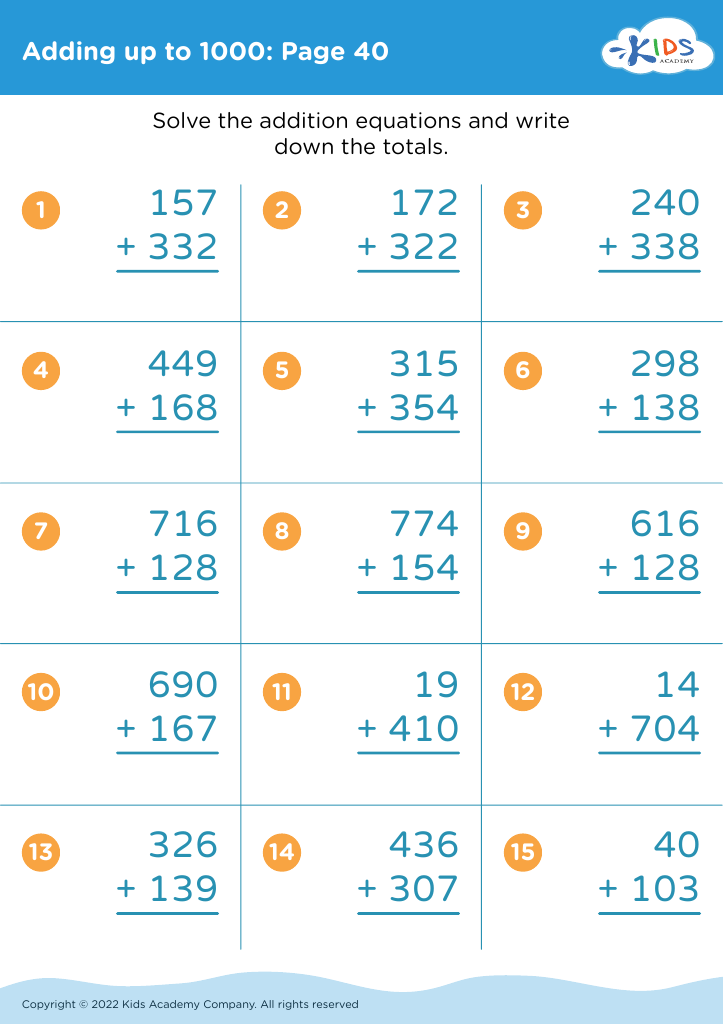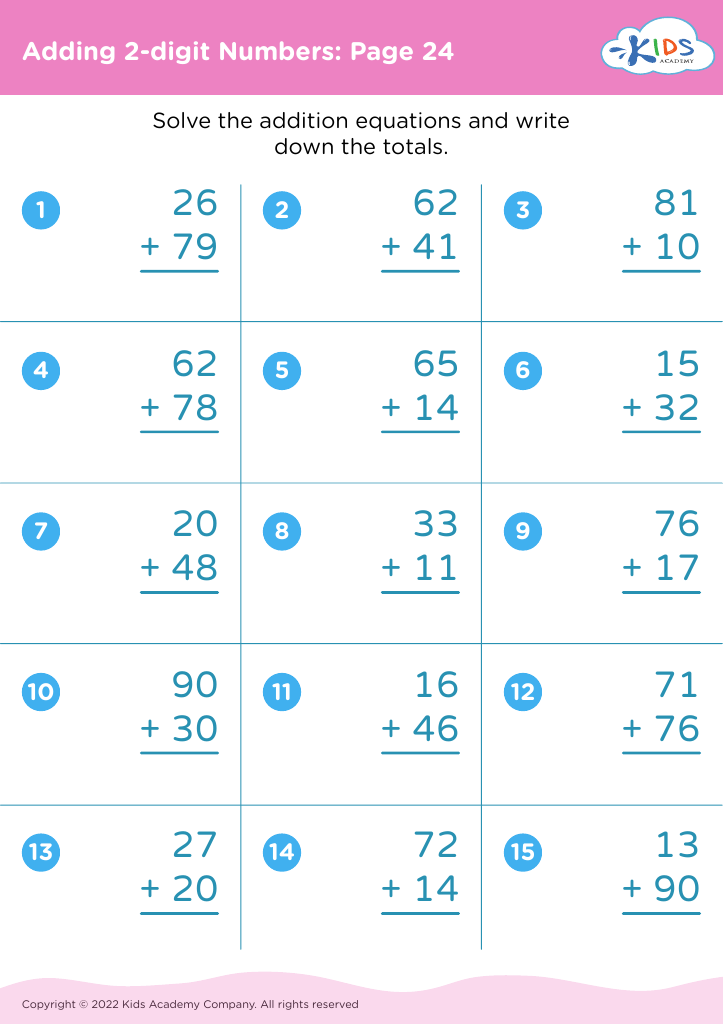Improving numeracy skills Addition Worksheets for Ages 4-9
3 filtered results
-
From - To
Enhance your child's numeracy skills with our engaging Addition Worksheets designed for ages 4-9. At Kids Academy, we focus on providing fun and educational resources that transform learning into an enjoyable adventure. Our well-structured worksheets help young learners grasp fundamental addition concepts, building their confidence and proficiency in math. Perfectly tailored to suit different learning paces, these activities boost critical thinking and problem-solving abilities while making arithmetic exciting. Equip your child with the essential skills they need to succeed—explore our enriching and interactive addition worksheets today! Visit Kids Academy for top-quality educational support.
Improving numeracy skills, especially addition, is crucial for children aged 4-9 because it establishes the foundation for future mathematical understanding and success. At these formative ages, children’s brains are highly adaptable and can absorb new information more readily, making it the ideal time to build basic arithmetic skills. Strong numeracy skills promote problem-solving abilities, enhance logical thinking, and boost confidence in handling daily tasks that involve numbers, such as counting money, telling time, and measuring ingredients in a recipe.
For parents and teachers, fostering these skills helps children become independent learners and critical thinkers. Introducing addition early can make math enjoyable and less intimidating, setting the stage for more advanced concepts like subtraction, multiplication, and division later on. Moreover, early competence in math is often linked to better academic performance in other subjects, as it encourages an analytical mindset.
Neglecting this aspect of education can lead to difficulties in higher grades, where numerical understanding becomes essential across subjects. By prioritizing numeracy instruction through engaging activities and practical applications, parents and teachers ensure children build a solid, lasting mathematical foundation, aligned with future academic and personal achievements.
























